An abdominal tumour is a growth that forms inside the abdomen. It can start in any organ, like the stomach, liver, kidneys, ovaries, or uterus. Some tumours are harmless (benign), while others can be dangerous (cancerous).
Many people think all tumours are cancer. That is not true. A tumour can grow slowly and stay in one place. But if it spreads and harms nearby organs, it needs treatment right away.
Doctors decide the next steps based on where the tumour is, what kind it is, and how fast it is growing. Some tumours need only regular checkups. Others may need surgery, medicines, or more tests.
Abdominal tumours can be benign (non-cancerous) or malignant (cancerous). They may grow in different parts of the belly, including the stomach, liver, intestines, kidneys, or female reproductive organs. Some stay in one place and grow slowly. Others may spread to nearby tissues if not treated.
Here are the common types of abdominal tumours:
Doctors use imaging and biopsy tests to find out the type of tumour. This helps them decide the best treatment plan.
People need abdominal tumour treatment when doctors find abnormal growths in the stomach area. These tumours can press on nearby organs, cause pain, or block digestion. Treatment helps reduce discomfort, stop the tumour from growing, and prevent it from becoming harmful.
Some tumours may be cancerous, while others are not. However, even non-cancerous tumours can create serious problems if they grow too large or get infected. Early treatment gives better results and improves daily life.
The common causes of abdominal tumours are:
Abdominal tumours may not cause clear signs in the beginning. Many people feel mild stomach problems and ignore them. But as the tumour grows, it starts to affect digestion, energy, and comfort. If you are wondering how to know if there is a tumour in the stomach, the answer is to look for changes that don’t go away.
Common Symptoms to Watch For
These symptoms are also seen in other conditions, like gas or infection. But if they last more than two weeks, it is time to see a doctor.
Doctors usually recommend abdominal tumour treatment in these cases:
If you’re unsure what to do if there is a tumour in the stomach, the first step is to speak with a specialist and get the right tests done. Early diagnosis gives more treatment options and better chances of recovery.
Doctors may recommend one or more of these tests to confirm the presence and type of tumour:
These tests help doctors understand the nature of the tumour and plan the right treatment.
What to Do if There Is a Tumour in the Stomach
Many people worry when they hear they may have a tumour in the stomach. Some wait, hoping the pain or swelling will go away. But if you think something is wrong, don’t ignore it.
Here are the first steps to take:
Do not rely on self-diagnosis or home remedies. Follow the guidance of a specialist for accurate diagnosis and treatment.
Bangla Health Connect helps you reach the right cancer specialists at trusted hospitals worldwide and take the next step with clarity. Bangla Health Connect can also arrange consultations with doctors before you travel.
This saves time and helps you take the right steps with support.
.png)
Through Bangla Health Connect, Bangladeshi patients can access leading hospitals across India, Thailand, and other countries that are internationally recognised for excellence in abdominal cancer care. Many families travel abroad for treatment because of the expert oncologists, advanced technology, and comprehensive patient support offered by these hospitals.
Here’s why Bangladeshi patients choose abdominal cancer treatment with Bangla Health Connect’s trusted hospitals:
Bangla Health Connect provides Bangladeshi patients with a trusted pathway to accurate diagnosis, advanced therapies, and world-class recovery support for abdominal cancer.
Bangla Health Connect connects patients with leading hospitals worldwide. These centres are recognised for their expertise in abdominal cancers, advanced diagnostic and surgical facilities, and dedicated international patient support.

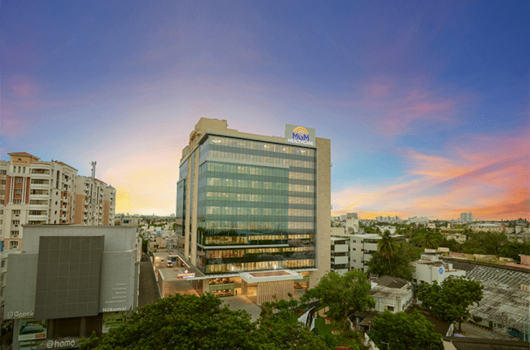
.jpg)

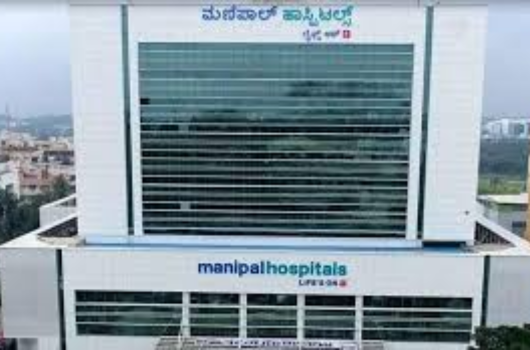
.png)
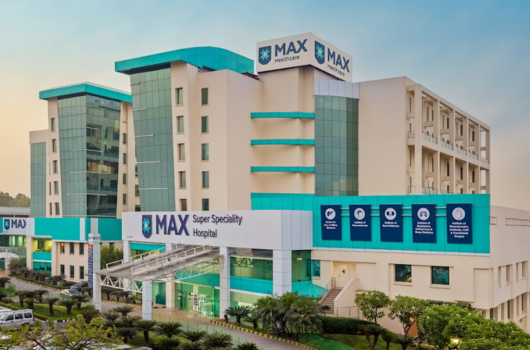
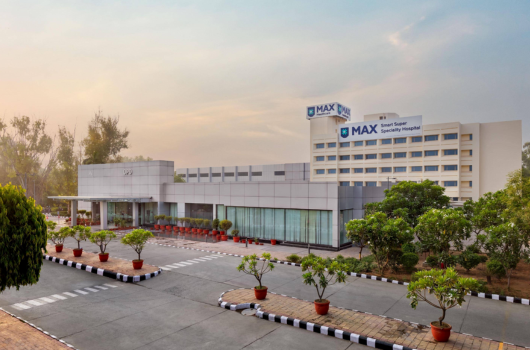
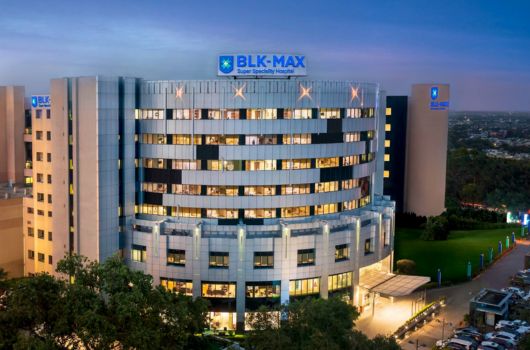




These hospitals follow global cancer treatment guidelines and provide full support for Bangladeshi patients through Bangla Health Connect.
The average cost of abdominal cancer treatment ranges from $3,500 to $8,000 in India and between $9,000 and $18,000 in Thailand. The final cost may vary depending on the treatment method, hospital location, and tumour type. Before viewing the detailed table of treatment-wise costs, it’s helpful to understand what influences these expenses most.
Note: India is well known for offering cost-effective advanced cancer treatment. Hospitals combine affordability with strong outcomes, supported by skilled oncologists and the availability of generic medicines.
Note: Thailand’s hospitals are often promoted as premium destinations for international patients. Their higher costs reflect the use of advanced imported medicines, luxury infrastructure, and all-inclusive patient care packages.
The costs listed are approximate and may vary based on hospital, location, and patient needs. Consult the healthcare provider for accurate and updated information.
The currency conversion rates in the table above are based on data from November 2025.
For more help on cost estimates and personalised guidance, contact Bangla Health Connect.
The 5-year relative survival rate for stomach cancer shows how likely patients are to live five years after diagnosis compared to the general population. For example, a 70% rate means patients have a 70% chance of surviving five years, depending on cancer type and stage.
Approximately 30% of patients live for at least one year after being diagnosed. Around 10% survive for five years, and about 5% live beyond ten years. Surgery offers the best chance of a cure, but only around 10% of patients qualify for it. The overall low survival rate for pancreatic cancer is mainly due to most cases being diagnosed at a late stage.
In abdominal tumour cases, “success” may not always mean a cure. It can also mean:
Leading hospitals improve outcomes through:
This combination of advanced technology, expert care, and holistic support gives patients better chances of recovery and improved quality of life.
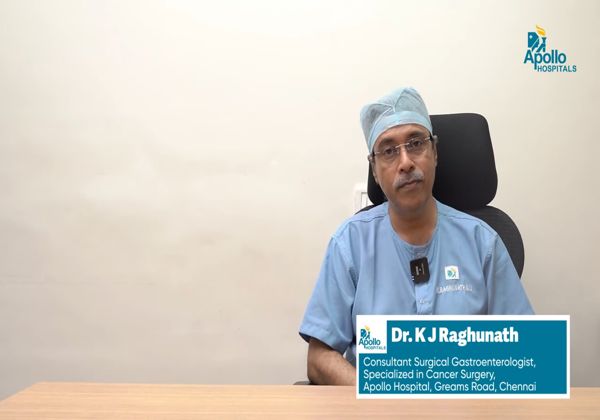
Dr. K.J. Raghunath, a Consultant Surgeon specialising in Cancer Surgery at Apollo Hospitals, Chennai, states:
“Pancreatic cancer is treatable if detected early. Radical surgery remains the mainstay, and if the tumour is well-confined, it can be completely removed with clear margins. In more advanced cases, chemotherapy or radiation may be used to shrink the tumour before surgery. The key is early diagnosis; patients with small, non-spread tumours can achieve long-term survival.”
If you’re unsure what to do after an abdominal tumour diagnosis, the most important step is to get a clear opinion from a specialist and explore your treatment options quickly. That’s where Bangla Health Connect steps in, guiding patients and connecting families with trusted hospitals in India, Thailand, and other destinations worldwide.
Choosing hospitals through Bangla Health Connect gives patients access to world-class care, smooth coordination, and peace of mind.
Note: Bangla Health Connect does not provide medical advice.
A 53-year-old man from Bangladesh was diagnosed with colon cancer after experiencing bleeding and severe weakness. Despite a weak heart and a second thyroid cancer diagnosis, doctors at Apollo Proton Cancer Centre, Chennai, took up his case. A multidisciplinary team successfully performed robotic colon surgery and thyroid removal. He recovered well without major complications. His case highlights how experienced specialists and advanced technology can support safe outcomes, even for patients with complex abdominal tumours and multiple health conditions.
✅ Share Your Reports - Bangla Health Connect connects you with trusted hospitals worldwide.
✅ Get treatment plans from leading Hospitals worldwide
✅ Choose the one that fits you
✅ Let us handle the rest
Some common symptoms include stomach pain, bloating, sudden weight loss, a feeling of fullness, bleeding, or irregular bowel habits. If these problems last more than 2 weeks, it's best to speak to a doctor.
Yes. If detected early, many abdominal tumours, including stomach and colon cancers, can be removed with surgery. Some also respond well to chemotherapy, radiation, or targeted therapy. Always consult a qualified oncologist.
You should share your reports with a cancer specialist immediately. Bangla Health Connect can arrange consultations with doctors abroad to help you understand the next steps. It facilitates consultations but does not replace a doctor’s evaluation.
Doctors may suggest tests like CT scans, ultrasounds, or endoscopy if they suspect a tumour. Symptoms such as persistent pain, swelling, or blood in the stool are warning signs. Seek professional medical care promptly.
Yes. Tumours in the uterus, ovaries, and cervix fall under abdominal tumours as they are located in the lower abdomen. Gynaecological oncologists usually treat these. Diagnosis and treatment should be guided by a qualified gynaecological oncologist.
It depends on your condition and treatment plan. For surgery or combined treatment, most patients stay between 2 to 6 weeks. Hospital stay duration depends on the individual’s condition, treatment type, and recovery speed. This may vary from patient to patient, and exact timelines can only be provided by the treating doctor.
Yes. Bangla Health Connect supports patients with doctor consultations, report reviews, visa letters, hospital coordination, cost estimates, flights, and follow-up support.

